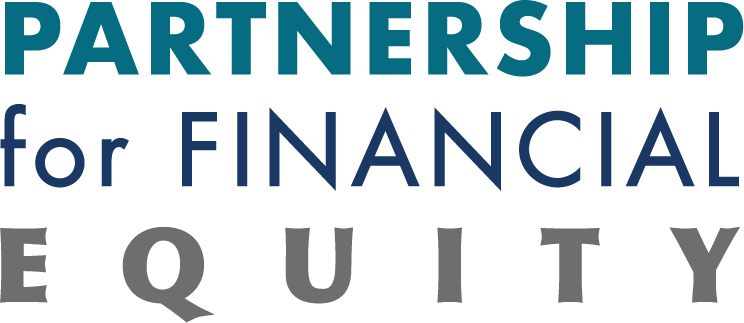MCBC’s Small Business Lending Roundtable Roundup – Spring 2020
May 02, 2020
Leaders in Small Business Lending Discuss 2019 Accomplishments
MCBC kicked off its 2020 Small Business Lending Roundtable series on January 23rd in Boston at Eastern Bank.
Leader Bank and Dorchester Bay Neighborhood Loan Fund highlighted accomplishments from 2019.
Leader Bank’s Patrick Daaboul (SBA Administrator) and Sandeep Jain (AVP- Commercial Loan Officer) discussed the institution’s role in the small business lending space as a top five SBA Lender for Massachusetts.
The Massachusetts Small Business Administration’s (‘SBA’) named Leader Bank the Lender of the Year to Minorities in 2019. Last year 58% of the Bank’s loan approvals went to minority-owned businesses. Leader was the #1 SBA Lender to Veterans in 2018.
Messrs. Daaboul and Jain explained that as a relatively young financial institution, Leader Bank still thinks like a small business by being resourceful and prioritizing relationships.
Customers receive highly personalized service that comes from focusing on respect and cultural sensitivity. Leader Bank has a reputation of being fluent in different communication styles and languages – and for using those resources deliberately to cultivate relationships. If there was one specific takeaway from the conversation it was to, “have better conversations with potential clients from the beginning.”
By being focused on relationship building, the Bank has cultivated a reputation as a community resource, not just a source of capital. Leader Bank also works with a number of nonprofit organizations including SCORE, Center for Women in Enterprise, and the SBA’s network of microlenders to ensure customers get access to technical assistance.
Putting patience and respect at the forefront of the lending model has created positive word of mouth and a valuable referral base that is fueling growth for Leader Bank and Dorchester Bay within the small business community.
Next up was Johnny Charles, Director of Economic Development at Dorchester Bay Neighborhood Loan Fund (‘Dorchester Bay’). Dorchester Bay, the Massachusetts SBA’s Breakout Microlending Intermediary of the Year in 2019, is a SBA microlender and non-depository community development financial institution (CDFI) certified by the US Treasury.
Recent investments in market research, a marketing plan, and an online lending platform fueled last year’s growth. The loan funded supported 30 small businesses by extending $278,650 in capital that created or retained at least 120 jobs in 2019.
Loan volume and capacity is expected to grow to $925K annually in the next three years. Dorchester Bay currently offers three loan products to address the community’s unmet lending needs, estimated at $3-$5 million. Dorchester Bay services target businesses through the recently rebranded website dorchesterbayloans.org and offices at Dorchester Bay Economic Development Corporation.
Small Business Lending Responds to COVID-19
MCBC convened its second Small Business Lending Roundtable of 2020 on Thursday, March 19th.
Because this meeting fell just days after President Trump declared a national emergency due to the COVID-19 pandemic, the discussion focused on how the pandemic was impacting small businesses.
MCBC asked how state agencies and financial institutions were connecting small businesses with capital and banking services. Discussion leads included Mass Growth Capital Corp (MGCC), FDIC Boston Area Office, and Interise.
Alison Moronta discussed the eligibility criteria and program requirements to access a $20 million Small Business Recovery Loan fund being administered by MGCC. The loan fund was no longer accepting applications as of 12:30PM on March 19th, 2020.
Next, Paul Horwitz, Community Affairs Specialist, FDIC Boston Area Office, reviewed with us Financial Institution Letters pertaining to the COVID-19 outbreak:
- FIL-19-2020 Joint Statement on CRA Consideration for Activities in Response to the COVID-19
- FIL-18-2020 Frequently Asked Questions: For Financial Institutions and Consumers Affected by the Coronavirus
Paul also reviewed recently released revisions to the Banking Services and Strong Business Credit modules contained in the FDIC’s Money Smart for Small Business homepage curriculum.
Closing out the discussion was Nancy Lee from Interise. Nancy recapped the success of its Inclusive Economy conference held in Boston in early March. Video highlights are expected to be released soon.
Interise, like many community partners supporting small businesses, was pivoting to respond to the COVID-19 crisis. Using #SolveIt, Interise asked that lenders and technical assistance providers share ideas to support small businesses and their employees across race and place.
Top 3 ‘How to’ concerns Interise heard from small business owners:
- Cash flow management
- Support employees AND prepare company to ‘survive’.
- Locate opportunities during this crisis — and re-purpose current work.
Getting Capital to Small Businesses Hardest Hist by COVID-19
MCBC’s most recent Small Business Roundtable was held on April 30th.
Discussion leads from the Mayor’s Office for Economic Development, Lending Front, LISC Boston and Citizens Bank shared insights and updates on new initiatives to connect small businesses in Boston with capital and banking services during the COVID-19 pandemic.
Austin Williams, shared how the City is supporting small businesses, with a focus on Small Business Financing programs, particularly the creation of the Small Business Relief Fund to aid businesses most impacted by COVID-19.
LISC Boston recently announced the launch of the LISC Small Business Recovery Grant Program for Massachusetts.
The program provides grants of up to $10,000 to mitigate economic instability and increase the likelihood of business survival. Launched with seed funding provided by Citizens Bank, the Small Business Recovery Grant Program is part of the LISC Rapid Relief & Resiliency Fund for Massachusetts.
Karen Kelleher, Executive Director of LISC Boston, reported the fund had nearly 4,000 applicants in the week in which applications were taken. The applicants were from 26 communities and 66% had annual revenue of less than $300K. LISC Boston is actively fundraising to assist more applicants.
LISC Boston also announced the Massachusetts Equitable PPP Access Initiative to ensure timely and equitable access to the SBA’s Paycheck Protection Program loans. Please find more information here.
LendingFront is a MassChallengeFinTech partner collaborating with City of Boston. It works w/ banks, community banks, leasing companies, and CDFIs to provide an end-to-end loan origination, underwriting, and servicing platform. Learn more here.
Reflecting on Stimulus Efforts to Support Small Business Lending
On June 11, 2020 MCBC’s Small Business Lending roundtable focused on the impact of Covid-19 on lending to small businesses and the resources available to them during the pandemic.
The roundtable discussion highlighted perspectives and insights from:
- Joe Kriesberg, Mass Association of CDCs
- Susan Murray, SEED Corporation
- Jon Skarin, Mass Bankers Association
- Charles Smith, Eastern Bank
The discussion covered the following questions:
- What were economic conditions leading up to COVID-19 for small businesses in MA? How can we contextualize this current crisis relative to the 2008 crash?
From a banking standpoint, most people felt good about the market leading up to this crisis. Loans were being made with confidence and there was no expectation of a massive downturn.
In relation to the crisis of 2008, the economic crisis due to the pandemic feels different for multiple reasons. First, there was a clear ramp up to the crisis in 2008: in the form of the housing bubble. This pandemic took most of us by surprise. The second major difference is how the world is handling this crisis. The economy is responding to the government’s handling of a public health crisis as opposed to banks being unable to provide credit.
It was agreed that the traditional tools of stimulating the economy don’t work very well on an economy that is shut down. As Susan Murray aptly related, “We’re basically pushing on the accelerator and the brakes at the same time; you don’t get very good gas mileage when you do that.”
Still, compared to 2008, the economic stimulus in response to the pandemic has focused on smaller businesses rather than larger capital projects. CDFIs and microlenders have been given a lot to work with in terms of payment relief for guaranteed loans by the SBA. The SBA is making payments for six months for principal and interest on their guaranteed loans and new loans are getting an additional four months, which gives businesses a much larger window to get their feet on the ground.
All agreed there is an uneven distribution of adverse impact depending on the sector of the economy. In a typical recession, everybody suffers. But hospitality, restaurants, and retail have been particularly hard hit by this crisis.
- What are you seeing as some of the biggest challenges impacting some LMI borrowers and communities?
Small businesses were on exceedingly tight margins before having to significantly reduce their capacity. Many of these Main Street businesses (hair salons, restaurants, personal services, etc.) feel as though the cost of reopening is not worth it. They are finding it difficult to entice workers to come back into these new conditions along with the cost of and impact to childcare. The other concern is that many of the clients of these businesses are LMI households who have had to fall back on tight budgets and are not going out and spending on non-essential goods and services. Many of these businesses are owned by people of color and it is known that people of color have less accumulated wealth than white people. Minority owned businesses, immigrant owned businesses are starting with less equity and collateral, and so have a harder time accessing capital.
Small businesses suffered in the first round of PPP program as the money went to established businesses with banking relationships. Marginalized businesses need more time and assistance. The PPP program needs to be structured to help these businesses; otherwise, there is not an equitable outcome. With the changes that Congress made recently, there are only three weeks remaining to get small businesses from LMI neighborhoods into this program.
The SBA did make it easier for borrowers to get SBA loans by extending the SBA express program up to a million dollars with a 50% guarantee. That’s the most well-used program around the nation. It makes it very easy to get larger terminals, but also larger lines of credit. Any line of credit that was over $350,000 would have to go through a completely different program.
The limitations of the PPP program led to the creation of the Equitable PPP Initiative. The Federal Reserve Bank of Boston reached out to several banks who agreed to take PPP applications from non-customers. Technical assistance providers, CDCs, CDFIs and others identified borrowers, helped them prepare applications, helped them approach banks, and submit their applications online.
In addition to the PPP program and funding from Mass Growth Capital Corporation, some EDA funds are being made available. The City of Boston utilized CDBG funds to offer grants to some of the hardest hit businesses. But there are still many businesses that are suffering and trying to overcome these challenges.
- What do you see as the next step in the response? Where is the next program or initiative going to be coming from? What gets us through the summer until, perhaps the next stimulus package is available?
There will most likely be money left over in PPP after June 30th, and accessing that would be difficult without Congressional action. Because PPP was created under the 7A program, there may be an opportunity to use some of that additional funding to enhance the SBA 7A program going forward. The SBA is covering payments for six months for 7A borrowers; including all new borrowers.
The important thing is to make sure stimulus programs reach the most vulnerable businesses. The SBA 7A program gets to a lot of folks, but it probably doesn’t get to the smallest borrowers. The SBA’s microlending program, which is administered by local loan funds like SEED, is another vehicle to provide stimulus dollars potentially. There’s a push to get money to CDFIs directly, if Congress were willing to reprogram that money, we could get a lot of mileage out of it.
The Federal Reserve Bank’s Main Streets Program is starting to reach small businesses. It started out making loans of a million dollars. The loan minimum was reduced to $250,000 in response to public feedback. We’re going to see more activity around that program over the next coming months. It might take some pressure off of the existing SBA Programs as well.
Small business owners and the technical assistance providers have to learn and relearn the guidelines for all of these programs. They do not have the legal and accounting resources of large corporations.
- How are anchor institutions (universities, hospitals, etc.) supporting small businesses and how can they be encouraged to help? Are we starting to hear or see some responses from some of those anchor institutions in the Commonwealth?
There have been efforts on this front, but not much has ever come of it. Much of the predicament is being able to scale small businesses because they do not have the necessary resources. Whereas companies like Amazon and Walmart already have the infrastructure to deliver.
Small Business Strong is a corporate and foundation led effort to provide a three-prong solution for small businesses. In its initial phase, the pilot is exclusively focused on minority and women owned businesses across Massachusetts. The online portal catalogs federal, state, local, and corporate resources, but the real meat behind it is access to free advice. PWC donated a lot of work hours to setup a Salesforce platform to manage 170 business advisors. Small businesses access the site, enter their information, and are connected with a business advisor. The business advisor sets up a call with the business owner to triage the impact of COVID-19 on their business, provide initial advice, and refer them to a functional specialist in a key area.
- What efforts are underway to plan for an equitable recovery so that everyone is able to move forward?
It is uncertain whether or not small businesses actually benefit from reopening. There isn’t a lot of equity in terms of the economy reopening; guidance is lacking and much of the aid is on a first come first serve basis. This approach makes it harder for small businesses to compete with larger companies which makes what is happening at the policy level inequitable.
A common refrain in the last three months is the need to capitalize CDFIs to ensure that they’re able to do as much as possible right now. There has always been a combination of philanthropic, bank, and government efforts. Hopefully as we start planning for an equitable recovery the three sectors can come together and really help folks. It will take a larger scale and more coordinated response across those three industries to really benefit all of the CDFIs in Massachusetts and in the region.
As a reminder, roundtables are open, informal and collegial exchange of insights. For the foreseeable future, MCBC will host roundtables remotely. Membership in MCBC is encouraged to sustain our efforts, but is not a requirement to attend roundtable meetings. Dates for MCBC’s Mortgage Lending and Small Business Lending Roundtables are on our website.


